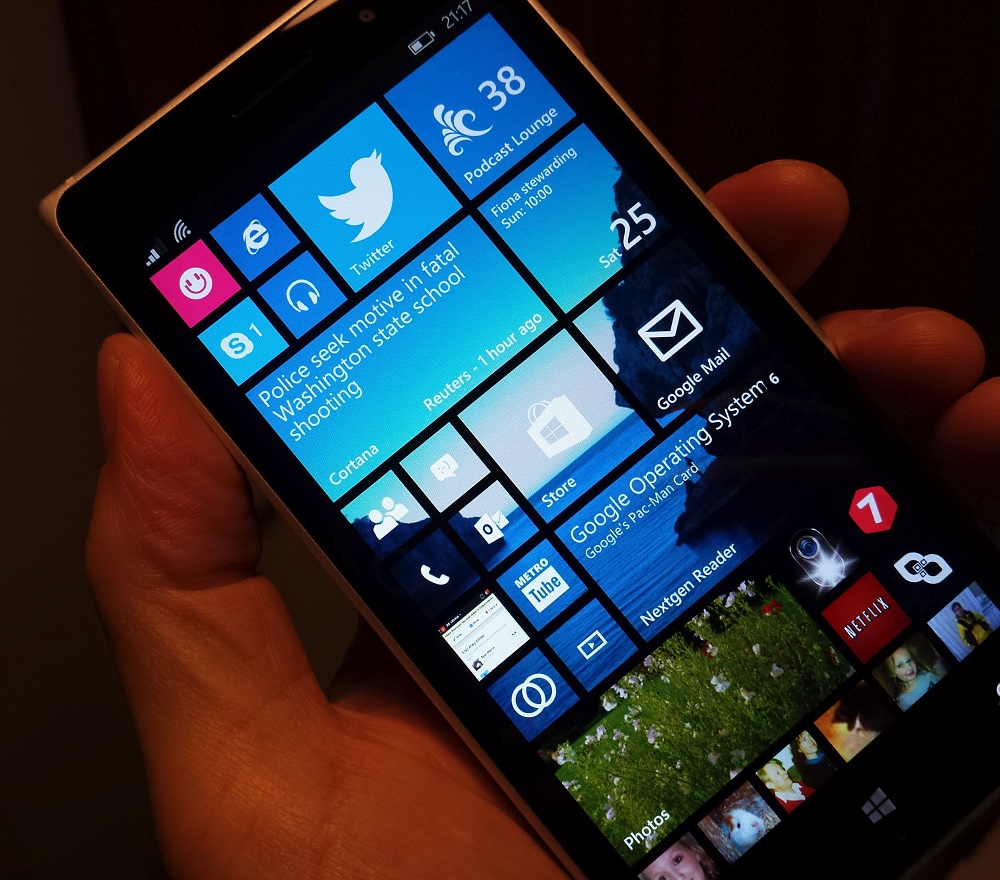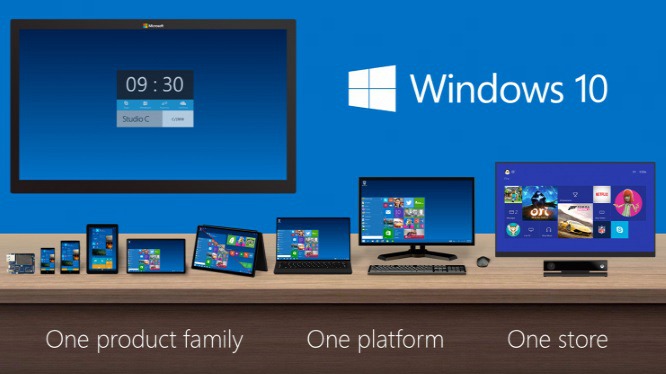In fact, we had a go at answering it in the podcast, but for the many people who don't listen to that, I thought a textual response here might be interesting and appropriate.
The world of late 2014
Two things are now evident in the smartphone world of today:
- There's a lot of commonality across all platforms now in terms of functionality - each of Windows Phone, iOS and Android now have the basics covered, in terms of PIM, social, email, Web, Maps and navigation, Office document handling and editing, voice transcription and assistance (Cortana, in Windows Phone's case). The differences between each in terms of scope are relatively minor and a new phone buyer would have trouble picking a winner based on just these conventional bullet points.
- With Microsoft placing a 'cloud first' emphasis on its applications and services, with OneDrive, OneNote, Office, and so on, all available for other mobile platforms, and with (Nokia) HERE now similarly cross-platform (including the full offline maps), some of the historical unique selling points for Windows Phone are no longer 'unique'.
In the face of these two points, essentially underlining the original question, why should a new buyer choose a Windows Phone?
10 reasons to pick Windows Phone over Android and iOS
1. 'Robustness'
For new users ('normobs'), it's almost impossible to crash Windows Phone or bring it to a standstill. The way applications are brought to a halt when not in the foreground, along with very cautious restrictions on background tasks, means that the OS is very robust to ignorance. Start a game loading and press the Windows key halfway through the load? No problem. Run through 30 games, one after the other, without explicitly closing any? No problem. All handled gracefully, even under phones with only 512MB of RAM.
In fairness, iOS does pretty well on this score too, with similar handling of running applications, but I'd still recommend Windows Phone as king of the heap here, not least because of no.2, below.
2. Speed and responsiveness even on budget hardware
The newest of the current mainstream smartphone OSes, Windows Phone's UI was essentially a complete rewrite/rethink, and the OS has ended up with a UI that's fast and fluid, however low you go with specifications. Buy an ultra budget £50 Lumia 520 or 530 and there's little discernable difference in speed to the end user from a £400 flagship. In contrast, £50 Android devices are legendary for sub-standard performance, not least because Android requires more RAM to work in and RAM is an obvious thing for a manufacturer to cut in order to get down to the price.
iPhones and iOS are not applicable here at all, of course, since even the cheapest iPhone is almost ten times the price of the entry level Windows Phones.
3. The Start screen and live tiles
The biggest and most obvious differentiator has to be the live tile interface and Start screen. The idea is that all your core stats and information are surfaced in a single glance, without having to dive into lots of different applications or spend time swiping around all the time. And it works - once you get over the sheer right-angledness of it all, and once you've set up a decent live tile background, you have an attractive and really useful day to day starting point for you life. I should know, I've been tweaking it and living with it for several years now and I prefer it to iOS and Android in all back to back tests.

4. A very different look and feel, a breath of fresh air
Going along with the Start screen, it's evident, even on shop shelves, that Windows Phone is different. The tile interface looks very different from iOS's static icons and Android's typical manufacturer or network-centric homescreens. Plus the coloured cases used on many Windows Phones (just started to be copied by some Android phones and some iPhones!) still grab the eye.
5. One handed, friendly navigation
One aspect of iOS and Android which drives me mad is the way the UI often puts controls near the top of the screen, which is a pain when you're holding the phone one-handed and the screen size exceeds about 4.5". So much thumb-stretching and handset-juggling. In contrast, Windows Phone's toolbars and menu (plus the main capacitive controls) are all at the bottom, within easy reach.
6. Common apps and thinking
It's evident from photos like this, below, from the Windows Phone 10 launch, that there's common thinking across phone, tablet, laptop and desktop, even more so than for other platforms. The iPhone and iPad are very close, of course, but in terms of interface and core apps they're quite a long way still from that of Mac OS X, despite Apple's attempts to bring the interfaces together recently. While Android is really mobile-only and there's no direct desktop equivalent, other than the Chrome browser and services running within that, arguably. A few freak hybrid devices and Chromebooks aside.

You only have to use a Windows Phone and then use Windows 8 to see the huge similarities in core apps and presentation. OK, so few people like Windows 8 on the desktop, but at least the vision's there, and the phone/tablet/desktop will only get closer as Windows 10 approaches.
7. Enterprise friendly
There's a lot built-into Windows Phone that's enterprise friendly, not least facilities for encryption and remote management by an IT department. Add in the similarities with Windows and the increasing use of 'universal' applications and you can see that going to Windows Phone is an easier sell to management than looking at large numbers of (e.g.) potentially dangerous and incompatible Android devices.
8. Not hackable, safe from viruses
Yes, I used 'dangerous' in the last paragraph, in the context of Android. With the ease with which end users can root, hack or at the very least turn on the installation of applications from 'unknown sources', plus the high publicity given to some Android malware, Windows Phone looks an infinitely safer bet. It's impossible to hack a Windows Phone to install dodgy applications onto a specific device, short of signing up as a developer and paying your dues to Microsoft for the privilege.
9. Generally high design ideals, high build quality
OK, there are now some new, cheap Windows Phone OEMs, but the vast majority of devices on this platform are from Nokia/Microsoft, meaning generally excellent choice of materials, design and good build quality. In contrast, especially at the lower price levels in the Android world, cheaper plastics and components prevail, plus designs tend to be less holistically impressive.
10. Unique hardware selling points
This factor is gradually being eroded, but the fact remains that you're more likely to encounter technology like high-spec cameras, Qi charging, ultra-high contrast displays, in Windows Phones, with Nokia's old R&D teams involved, at least. Devices like the £300 (all-in) Lumia 830 prove this point well, which is very well stocked with hardware goodies at a mid-range price.
Why not?
Of course, Windows Phone is far from perfect and I'd agree that I've ignored quite a number of other reasons why buyers might want to avoid Windows Phone(!) But let's leave that feature for another day and perhaps another site. This is All About Windows Phone, after all!
I remain a fan of Android for many different reasons, and even own a few iOS phones, but, as ever, nothing's perfect, and it's up to the end user, armed with articles like this one, to weigh up the advantages of each platform and ecosystem before making a purchase. But at least the case for a Windows Phone has now been made, and it's a case that's very valid, even in late 2014.
